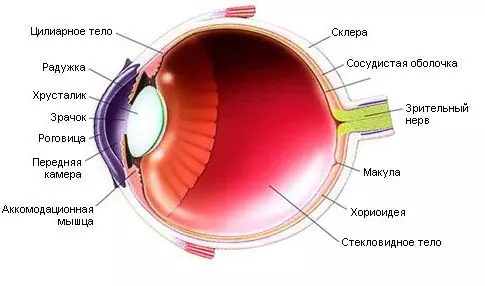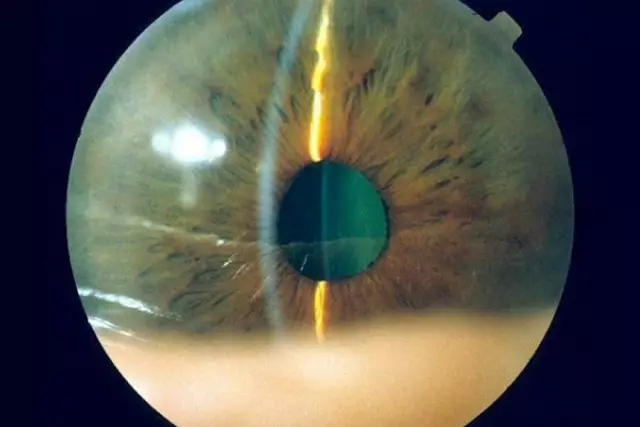- Author Rachel Wainwright wainwright@abchealthonline.com.
- Public 2023-12-15 07:39.
- Last modified 2025-11-02 20:14.
Ophthalmology

Vision is extremely important for humans, because 90% of information we receive is through our eyes. Therefore, visual impairments affect not only the general well-being of the patient, but also his psychological state. Ophthalmology deals with the diagnosis, treatment, correction and prevention of eye diseases. Since not only eye diseases, but also lesions of the central and peripheral nervous system can lead to visual impairments, ophthalmology is closely related to neurology and some other branches of medicine.
Visual impairment can occur at any age. Everyone knows age-related decline in visual acuity, and the image of grandparents with glasses is a classic in our culture. However, not everyone knows that, thanks to the modern means available to ophthalmology, such age-related disorders in most cases are successfully corrected.
From a medical point of view, visual impairments in children, which are considered by pediatric ophthalmology, are more dangerous. If neglected, these violations can lead to severe disorders and even blindness, while timely assistance can completely eliminate the problem. In this regard, the diagnosis of visual impairments is of great importance in pediatric ophthalmology, which is quite difficult to detect, since complaints in a small child, as a rule, are absent. However, if parents are attentive enough to their child and consulted a doctor in a timely manner, then this does not constitute a problem. Modern pediatric ophthalmology has the latest computerized diagnostic methods to determine any pathology of vision, even in the smallest patients.
Currently, in adult ophthalmology, and in pediatric ophthalmology, microsurgical operations are widely used, which have become possible thanks to a new generation of high-precision surgical techniques. Thanks to such operations, a significant part of eye diseases that were previously considered incurable are successfully cured.
In most cases, glasses are no longer a necessary attribute of a person with visual impairment, since even if this violation cannot be eliminated by surgical and therapeutic methods, it is possible to choose contact lenses that have become part of the daily practice of ophthalmology.
Found a mistake in the text? Select it and press Ctrl + Enter.



